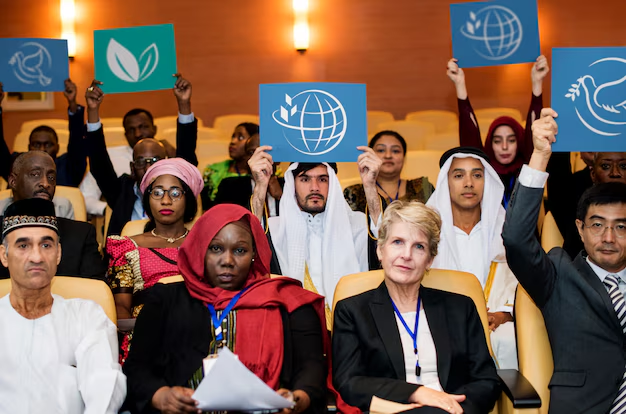Populism, a political approach that emphasizes the interests of ordinary people over the elite, has been a significant driving force in modern global politics. It has emerged as both a reaction to political and economic disillusionment and as a powerful tool for leaders seeking to connect with the masses. From the rise of right-wing populism in Western democracies to the surge of left-wing populist movements in Latin America, populism is reshaping political landscapes around the world.
The Rise of Populism in Global Politics
Populism has existed for centuries, but its influence has gained unprecedented momentum in recent years. This surge can largely be attributed to growing discontent with the political establishment, economic inequality, and the effects of globalization. In many nations, citizens feel disconnected from their governments, with elites often perceived as out of touch with the struggles of ordinary people. Populist leaders exploit this disillusionment by positioning themselves as the voice of the “common man.”
Key events like Brexit, the election of Donald Trump in the United States, and the rise of populist movements in countries such as Brazil, Hungary, and Italy demonstrate the global appeal of populism. These leaders often challenge the status quo, promising to undo what they perceive as harmful global policies, such as immigration, free trade, and international cooperation.
Populism’s Key Features
Populism is often characterized by several features:
- Anti-Elite Rhetoric: Populist leaders frequently criticize political elites, the establishment, and institutions, accusing them of corruption and neglecting the needs of ordinary citizens.
- Nationalism: Populism is often tied to strong nationalist sentiments, calling for policies that prioritize the interests of the nation over international collaboration.
- Direct Appeal to the People: Populist leaders often bypass traditional institutions and communicate directly with the public, using social media and mass rallies to rally support.
- Us vs. Them Mentality: Populists often create a dichotomy between “the people” and “the elites” or “the outsiders,” framing political issues in binary terms.
Global Movements Shaped by Populism
The rise of populism has led to the formation of global movements that challenge existing political systems. The “Yellow Vest” protests in France, for example, were fueled by populist grievances over economic inequality and perceived government elitism. Similarly, in countries like Hungary and Poland, populist governments have challenged European Union norms, rejecting immigration policies and advocating for more sovereignty.
In Latin America, left-wing populism has seen a resurgence, with leaders like Venezuela’s Hugo Chávez and Bolivia’s Evo Morales advocating for socialist reforms and championing the rights of the marginalized. These movements often appeal to those who feel left behind by market-driven economies.
The Impact of Populism
Populism’s influence has led to major shifts in global politics. It has fractured traditional political party systems, empowering outsider candidates and altering the political discourse. However, populism has also sparked concern about the erosion of democratic norms, with critics arguing that populist leaders often undermine democratic institutions, free press, and the rule of law.
Despite these concerns, the power of populism cannot be denied. It has given a platform to voices that were previously unheard and has brought long-standing issues like income inequality, immigration, and nationalism to the forefront of political debates worldwide.
FAQs
1. What is populism? Populism is a political ideology that emphasizes the rights and power of ordinary people over those of the elite or establishment.
2. How has populism impacted global politics? Populism has led to the rise of political movements that challenge traditional elites, often resulting in shifts in governance, economic policies, and national identity.
3. Is populism always a negative force? While some see populism as a response to legitimate grievances, others argue that it can undermine democratic principles and fuel division.
4. How does populism manifest in different countries? Populism can take on various forms, including right-wing nationalism, left-wing socialism, or anti-globalization movements, depending on the country and context.
5. Why are people drawn to populist leaders? People often support populist leaders because they feel these leaders represent their interests, especially when they are disillusioned with the establishment or feel marginalized.
6. Can populist movements be sustainable? While populist movements can be powerful, they often struggle to maintain momentum once in power, as they face challenges in governing and meeting the high expectations they set.
7. What are the risks of populism? Populism can lead to the erosion of democratic norms, including the undermining of judicial independence, media freedoms, and minority rights.
Conclusion
Populism is reshaping the global political landscape, with both positive and negative consequences. It provides a platform for marginalized voices, yet its divisive rhetoric and challenges to democratic institutions raise important concerns. As populism continues to evolve, its impact on global governance and democracy will remain a crucial topic for debate and discussion.

